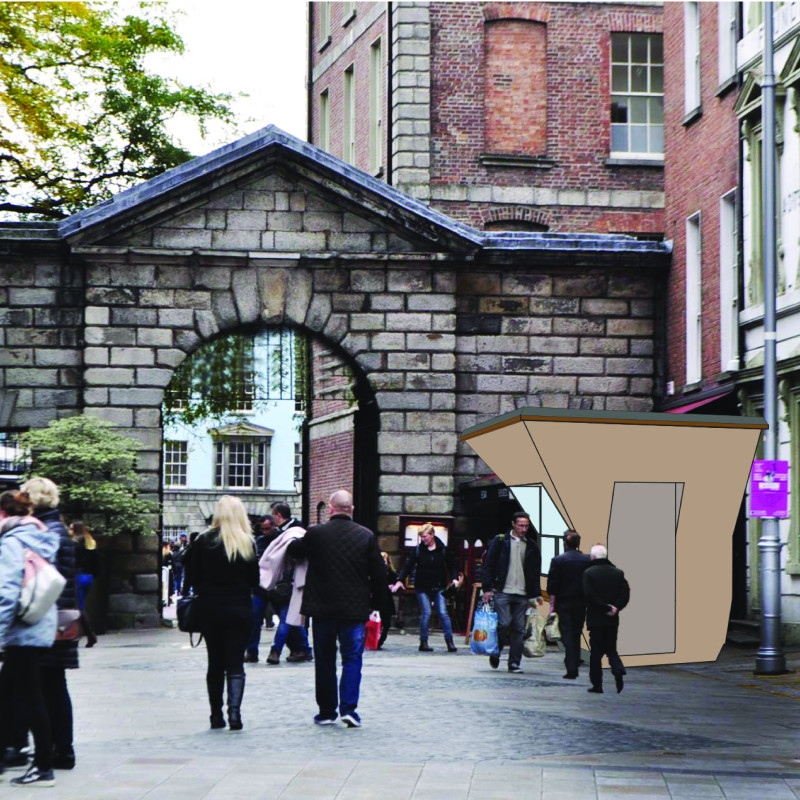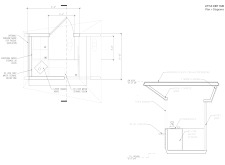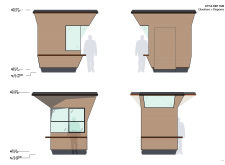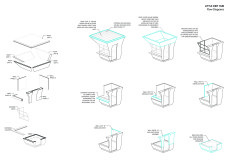5 key facts about this project
### Overview
Located in Northern Europe, the Little Dirt Hub (LDH) is a compact coffee house focused on sustainability and community engagement. Designed as a flexible structure, it addresses the challenges of urban density by offering a portable space that fosters social interaction and provides access to quality coffee. The structure’s adaptability allows it to be situated in a variety of contexts, catering to diverse community needs.
### Modular Design and Space Efficiency
The LDH's modular design facilitates quick assembly and relocation, promoting versatility across different environments, from urban centers to parks. With a footprint of 39 square feet and an additional 30 square feet of usable interior space, the architecture integrates essential operational components without sacrificing functionality. The layout includes designated brew stations and efficient water storage systems, with a focus on maximizing user experience in a limited area.
### Commitment to Sustainability
Material choices for the LDH reflect a dedication to local sourcing and environmental responsibility. The construction employs locally sourced wood for structural integrity, hardened plastic for durability, metal for countertops, and large glass windows to enhance natural light. These elements not only contribute to the building’s aesthetic but also reinforce its commitment to reducing the ecological footprint. Design features, such as natural ventilation and accessible counters, further emphasize functionality and inclusivity, making the space inviting for a broad range of users.























































